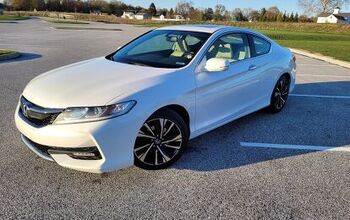Which Nation Tops the List for Vehicle Ownership Per Capita? The Answer Might Surprise You
In 2020, the United States reported a total of 289 million vehicles in operation, making up approximately 18 percent of the global count. This marked a significant increase, more than doubling the number since the 1960s. When exploring car ownership rates on a global scale, it's crucial to understand the variances in ownership, growth trends, and the rising influence of the global middle class on these dynamics.
Worldwide Rankings in Vehicle Ownership
The United States follows with a considerable 860 vehicles per 1,000 people, reflecting a robust vehicle market. Similarly for North America, Canada follows the States with 707 vehicles per 1,000 people. Europe presents a mixed scenario, with Poland and Italy notable for their high vehicle per capita rates. Poland, with 761 vehicles per 1,000 inhabitants, shows substantial vehicle ownership yet has a minimal adoption of electric vehicles. Italy stands with 756 vehicles per 1,000 people just slightly less than Poland. In stark contrast, Norway, with 635 vehicles per 1,000 people, has embraced electric vehicles more extensively, with a significant proportion of its vehicle market being electric.
In the top spot however is New Zealand with 869 vehicle per 1,000 people where the majority of their cars are imported from Japan.
The Surge in Global Vehicle Ownership
The expansion of the global middle class has propelled rapid growth in vehicle ownership in several countries. Vietnam, for instance, has experienced a dramatic increase in motorization, with an annual growth rate of 17 percent between 2015 and 2020. China and India also saw significant rises, highlighting a global trend towards increased vehicle ownership.
Electric Vehicles: The Future of Mobility
Electric vehicles (EVs) are gaining traction worldwide, with China leading the charge. The country houses more than half of the global EV fleet, a testament to its strategic position near essential raw materials for EV batteries and its robust battery production capabilities. Government policies have played a pivotal role in this sector, with China and Norway implementing strategies to overcome operational challenges and promote EV adoption. Norway, in particular, is on a path to eliminate sales of internal combustion engine vehicles by 2025, showcasing the country's commitment to sustainable mobility.
Concluding Thoughts
As vehicle ownership continues to evolve, the global landscape reveals a complex interplay between traditional vehicles and the emerging EV market. Countries like New Zealand and the U.S. demonstrate high vehicle per capita rates, while nations such as Vietnam and China show rapid growth, driven by economic expansion and policy initiatives. The shift towards electric vehicles, led by China and Norway, underscores a global trend towards more sustainable forms of transportation.
This article was co-written using AI and was then heavily edited and optimized by our editorial team.
More by TTAC Staff
Latest Car Reviews
Read moreLatest Product Reviews
Read moreRecent Comments
- CanadaCraig I think EV's will become LESS popular while the popularity of hybrids will skyrocket. And stay that way for quite some time.
- Jalop1991 It would be like saying “85 Percent of American Car Buyers Shunned General Motors” in the first quarter of this year – also true in terms of market share but is an intentional twisting of the numbers.That's not an "intentional twisting of the numbers". That's a cold statement of fact. WTF?
- Lou_BC There's an industrial road behind the 2nd set of rail yards in my town. It is undeveloped and straight. Over a 1/2 mile maybe more. It's become the unofficial drag strip even though there's a sanctioned strip in town. My son who's now a scout leader was on a civic clean up project with some off duty police. He asked them if they knew of any places that drag racing happens. They all were aware of that road. The unofficial response was, no one else is out there, be careful, and have fun. We were all young once.
- Jetcal Going to a sunrise Memorial.
- Lou_BC June 20th is the summer solstice. That's usually considered the first calendar day of summer. I just view this as springtime and the start of mosquito swatting season.


































Comments
Join the conversation